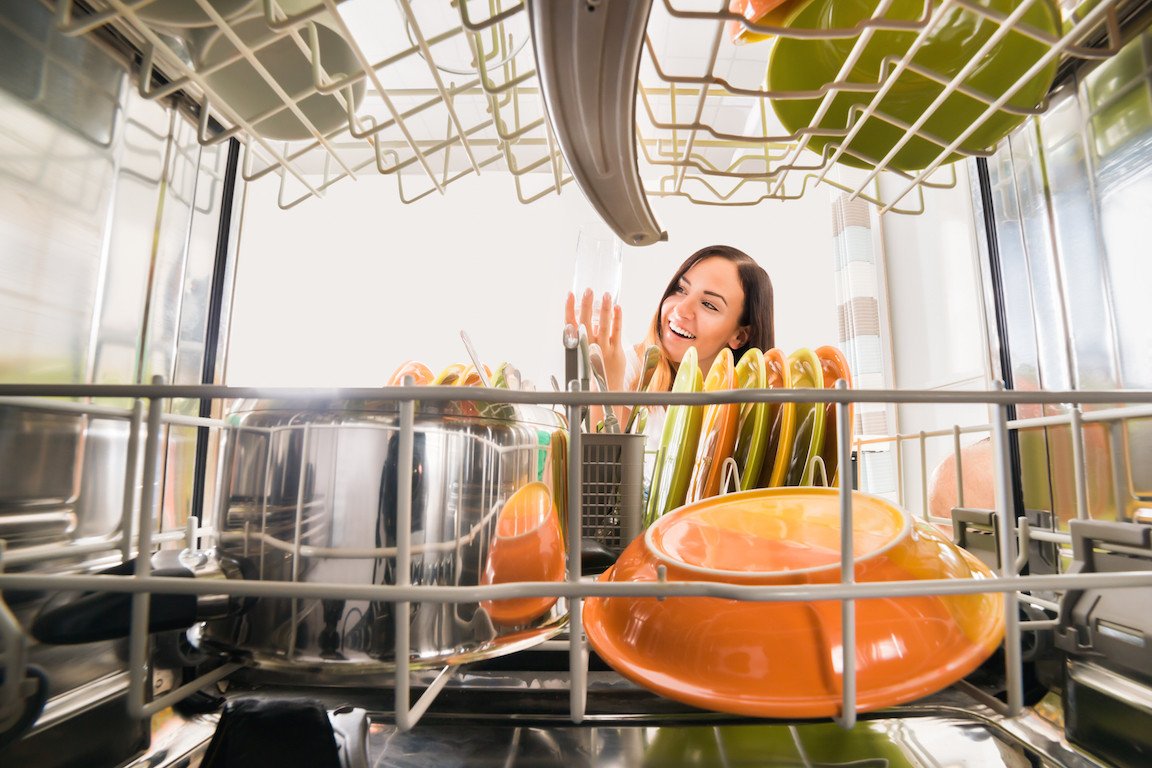
Where there is water, you are bound to find some form of calcification. If you live in an area where the water is particularly hard, you will notice the effects of this that much quicker. It’s important to make sure that you keep a clean dishwasher and clear of this build-up. If not, your appliance will not be as effective or efficient and you will most likely need to repair or replace it in the near future. Fortunately, there are a number of steps you can take to keep your dishwasher in top condition. Here’s how to decalcify your dishwasher:
Firstly, you will need to remove any and all dishes and cutlery from your dishwasher. If you want a clean dishwasher, you don’t want to leave anything behind.
For a regular dishwasher, you will need 2 cups of vinegar. Larger dishwashers could use a few extra ounces in order to be effective. Pour the vinegar into a glass or plastic cup. Make sure that the cup you use is dishwasher safe.
Place the cup on the bottom rack of the dishwasher. This will ensure that the vinegar is evenly sprayed all over the interior of the dishwasher as the spray arm works its magic. Make sure that you close the door properly and set the cycle to normal or regular. You do not need to use the high heat or sanitize feature when cleaning with vinegar. If your dishwasher has vents for releasing steam, you should make sure that you have at least one open window. The smell of the vinegar can be quite strong and you do not want to inhale it.
Once the cycle comes to an end, open your clean dishwasher and leave it open to air. If possible, allow your dishwasher to air overnight.
Make sure that you read the user manual or consult with the manufacturer regarding any decalcification products. There are some products like citric acid cleaners that are often recommended by manufacturers. If this is the case, you can use this cleaner in much the same way as you would vinegar. Don’t forget to clean out the water filtration system regularly. This is where particles tend to accumulate and this is how your dishwasher protects itself from calcification. If this filter is not cleaned, particles may pass through and enter the dishwasher tub. It’s also important to remember that vinegar is acidic and, if you use this cleaning method too often, it can cause more harm than good. Decalcify your dishwasher once a month (at the most) using vinegar and take care not to mix vinegar with any other detergents.
Regular decalcification will help those working parts last longer. In addition, it’s always important to make sure that you are using the right detergent and the right quantity of detergent. Hard water requires extra detergent and some dishwashers have an automatic water softening function. Check the user manual or contact the manufacturer for more details. At Express Appliance Repair, we specialize in repairing all dishwashers of all makes and models. Contact us today at (647) 492-7773 for urgent situation.